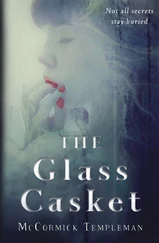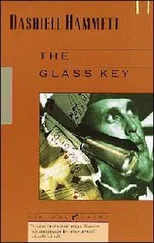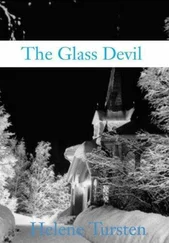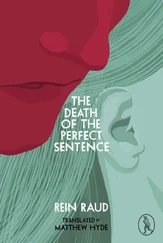Shadrack ran his hand through his hair. “Perhaps,” he said slowly. “They did not know how to make memory maps when they left Boston. But they might have learned.”
“Or someone else might have made a map that shows them in it.”
“It’s a very good thought, Sophia. Even a glimpse could be invaluable. You’ll see what I mean if you take a look at East Ending, now that the maps are layered.”
Sophia placed the tip of the quill on the map. She remembered a gray sky and a cold, damp breeze. The street was quiet. A few candles shone weakly in the windows, despite the fact that it was midday; the dark sky made them necessary. The bright red door she knew so well was closed. She could see someone through the upstairs window—a boy. He was reading intently at a desk, his chin in his hand. The memory suddenly grew sharper, as if a veil had been lifted from her eyes, and the boy looked up from his reading. He peered straight out at her—at Sophia—and smiled. Sophia gasped and pulled the quill away. “He looked at me.” She turned to Shadrack. “The boy in the window. Who was he?”
“You saw him!” Shadrack said, taking the quill. He placed it on East Ending and smiled as the memory came to his mind. “You know who he is—think about it.”
“Is it Grandfather?”
“Yes—it’s my father; your grandfather.”
“But why did he smile at me?”
“Because that is your great-grandmother’s memory—Grandmother Lizzie. She was there to see your grandfather smile at her through the window.” Shadrack put the quill down a bit wistfully. “Nice one, isn’t it?”
Sophia felt a wave of awe: she was seeing the world through the eyes of her great-grandmother, a woman she had never even met. But some part of her felt uneasy, as if she had trespassed on another person’s private thoughts. “It’s a lovely memory,” she said slowly. “But it’s not mine. Is it really all right to—to take it like that?”
Shadrack’s face was thoughtful. “It’s a valuable question, Sophia. It has to do with what I was mentioning before—knowing where your memory stops and the memory of another begins. It may help to know that no one loses their memories in making the map. People share them. But that raises another problem: everyone’s memory is imperfect. I tried to learn everything possible about this month in Boston. I put together as many memories as I could find. And I combined them with what I knew—the kinds of clothes people wore, the buildings, the ships, all that. But you must know that memory maps—maps of all kinds, really—are inexact. They are only the best possible approximation. Think of them like books of history: the author will try to be as accurate as possible, but often he or she is relying on slim pieces of evidence, and there is as much art and interpretation as there is factual content. The best maps will show the cartologer’s hand at work rather than conceal it, making plain the interpretive work and suggesting, even, other possible interpretations.”
“Does that mean that people could create maps that distort what really happened? Maps that are made up?”
“They could indeed,” Shadrack said gravely. “It is a serious crime to do so. But all honest mapmakers swear an oath to tell only the truth, and you must look for the mark of that oath when you examine a memory map. Look here,” he said, pointing out the small symbol of the mountains atop a ruler that appeared beside the date on each map. “This is the Insignia Rule. It is required on those maps whose truth can only be vouched for by their maker. But even a truthful mapmaker may be inaccurate. For example,” he confessed, “there are some streets on this map that no one remembers at two or three in the morning on some day or another. Who is to say that something did not happen that I failed to record? In that way, my map, too, might be a distortion.”
“But it is still incredible. It’s the most beautiful thing I’ve ever seen.”
Shadrack shook his head. “My maps are still those of a novice. There are maps that make mine look like mere scribbles. You’ll see some of them, soon enough. I have read memory maps so real one forgets oneself in them. Some so large they fill an entire room. Truly, the maps created by the masters are astonishing.”
Sophia bounced in her chair with excitement. “I want to read them all.”
Shadrack laughed. “Someday you will. But there’s much yet to learn, and we must work quickly. Come, let me show you how to navigate seconds.”
1891, June 15 to 21
The lenient laws of New Occident have long allowed foreigners to enjoy the benefits of residency without requiring their formal application for citizenship. Only foreigners wishing to vote, run for office, or form a corporation have been required to apply. As of July 4, these laws will change. Full naturalization will be necessary for all foreigners. If you are a foreigner and you wish to work or reside in New Occident, you must apply through the attached form for documentation and a foreigner’s lifewatch. All those without documentation and watches will be deported on July 4.
—From Application for Citizenship Pursuant to the Patriot Plan
FOR THE REMAINDER of the day Sophia studied the maps of Boston in February 1831, and Shadrack taught her the intricacies of the four map forms. She learned how to use different quills in order to see more or less detail; she learned how to close in on a particular minute or second; and she began to grow more accustomed to the flood of memories that weren’t hers.
The glass map still made her uneasy; remembering people she had never met left her feeling disoriented, as if she had woken up in someone else’s skin. But she began to find ways of distinguishing between her memories and those she experienced while map-reading: the memories from the maps were far clearer and more vivid than her own. At least one aspect came so naturally that she had nothing to learn: the fact that days, minutes, and hours unfolded at different paces; the sense that time could be short or long, depending on how one chose to read. More than anything, Sophia loved this quality of the memory maps. Though they revealed unknown places, their manner of compressing and expanding time made her feel entirely at home.
In the days that followed, Shadrack began his ambitious plan to teach Sophia about the cartology of the other Ages. She learned that these maps needed particular care; they had to be cleaned and stored carefully to ensure their safety. Mapmaking, Shadrack explained, was a science and an art practiced in every Age, all over the world. The dynamic memory maps had probably been invented in either the Baldlands or the Middle Roads. No one knew for certain, but he believed their invention would only have been possible in one of those regions where the various Ages had been so jumbled that past, present, and future were interwoven.
Shadrack had learned to make memory maps at the academy in Nochtland. The mapmaker’s guild was powerful there. The production and circulation of maps was carefully regulated; every Nochtland-created map had to bear the insignia that guaranteed its truthfulness—the tiny mountain range atop a ruler.
His collection of memory maps opened Sophia’s eyes even further to the wonders of cartology beyond New Occident. She saw parts of the world she had never imagined she would see. The maps varied in scale: some recalled only a few rooms, others an entire city; some contained memories from only a minute or an hour; others held the memories of a whole year. One map captured twenty-four hours in the Alhambra, in Granada. Another showed the passage of a year in the capitol of the Russias. And another recalled the crucial four months of rebellion that led to the creation of New Akan. It occurred to Sophia, as she studied the maps, that space and skill were the only constraints. On the third day of her studies she turned to Shadrack. “Shadrack, do you think there could be a memory map of the entire world?”
Читать дальше












